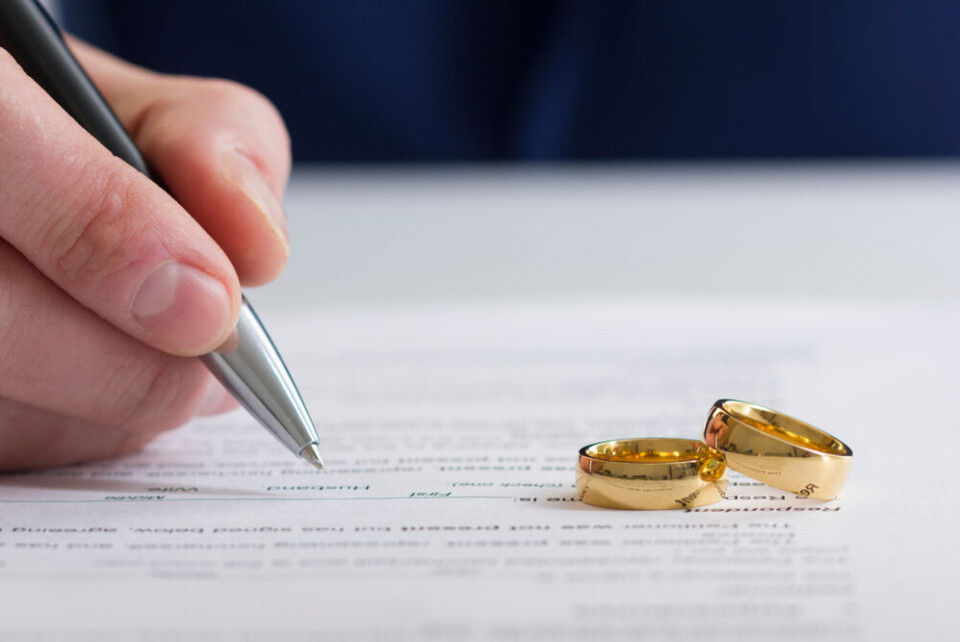-
France’s Christmas bonus: who receives it, and how much is it in 2025?
Around two million households are eligible for one-off ‘prime de Noël’ payment
-
Can adult children be held responsible for the debts of their parents in France?
If the mother or father has died the situation can be complex
-
Why your home insurance in France is likely to increase
Climate change-related claims cost more than €5 billion last year
Wills, assets: UK couples and France’s three main marriage regimes
Partner article: As in many aspects of life, differences between the UK and France on this topic are numerous

As February is often associated with Valentine’s Day, a romantic time of the year for couples, it seems apt that this column explores financial issues relating to marriage.
As in many aspects of life, differences between the UK and France on this topic are numerous.
In Britain, depending on one’s faith, or lack of one, couples typically get married in a church or register office. In France, most couples do both.
To be clear, before tying the knot in a church, couples must first be officially married in the local mairie.
Things get more complicated when it comes to choosing a marriage regime, effectively a marriage contract in the legal sense.
It is important to choose wisely as this regime will govern how a couple’s assets are owned, hence affecting how their assets are eventually shared out in the years to follow, including, one hopes many wonderful years later, in the case of inheritance.
Read more: ‘It took five trips to mairie’: What is getting a Pacs in France like?
In the broadest sense, the three main marriage regimes in France can be explained as follows:
- Séparation de biens
This literally translates as ‘separation of assets’, which is fairly self-explanatory;
- Communauté réduite aux acquêts
This is the default marriage regime in France.
In short, it means that everything purchased by the spouses after the marriage is owned by the community, ie. jointly by the two spouses, even if only one of the two pays;
- Communauté universelle
Everything owned before and bought during the marriage is owned within the community, ie. jointly by the two spouses.
I would suggest that most British couples, in their minds at least, would consider themselves married within a universal community, that is to say that all is shared, and very often all is inherited by the surviving spouse. But here is the issue: in France, many couples living here but married in the UK are legally considered to be married under the séparation de biens marriage contract.
Why is that a problem, you may ask? Of course, every case is different, but let us consider one relatively common example.
Read more: Make sense of.....The French Pacs
Mr and Mrs Smith, who have two grown-up children, were married in the UK and lived there for many years before moving to France. They would like the surviving spouse to receive all assets on first death.
However, under French inheritance law, that will not be the result under the séparation regime.
Inheritance law is another notable difference from the UK, where you can generally leave all your worldly goods to the neighbour’s dog, should you so wish!
In French law, however, the children have an absolute right to inherit a minimum percentage of the deceased’s estate, as follows:
- One child: half;
- Two children: two-thirds;
- Three children or more: three-quarters.
If we go back to our example, on the passing of Mr Smith, the two children would, under French law, have a right to two-thirds of Mr Smith’s estate, which might prove problematic to Mrs Smith.
A key part of financial planning is making sure that your loved ones will be taken care of, both during and after your lifetime.
In the UK, taxes notwithstanding, this is relatively easy, as you would simply write a will, allocating funds to whom you wish.
Read more: Six ways to reduce your French inheritance tax
In France, however, inheritance planning can be more complicated, though solutions exist. For example, in some circumstances it is possible to change the marriage regime.
Furthermore, as in the UK, there are ways to plan for the future in a tax-efficient way, offering as much protection as possible to all your loved ones, be they from a first or second marriage.
Life today can be complicated, and everybody’s situation is different. Advice given to your neighbour, for example, may be inappropriate for you. That is why, when looking at long-term financial planning, it is vital to take
advice tailored to your specific family set-up.
Once secure in the knowledge that your nearest and dearest are fully protected, love is free to rule the day.
This article was written by Christopher Davenport of Kentingtons
Related stories:
Unmarried couples to be able to adopt if new French law passes
What French term do you call your partner if not married?
How to get a Pacs in France and what differences to marriage
























